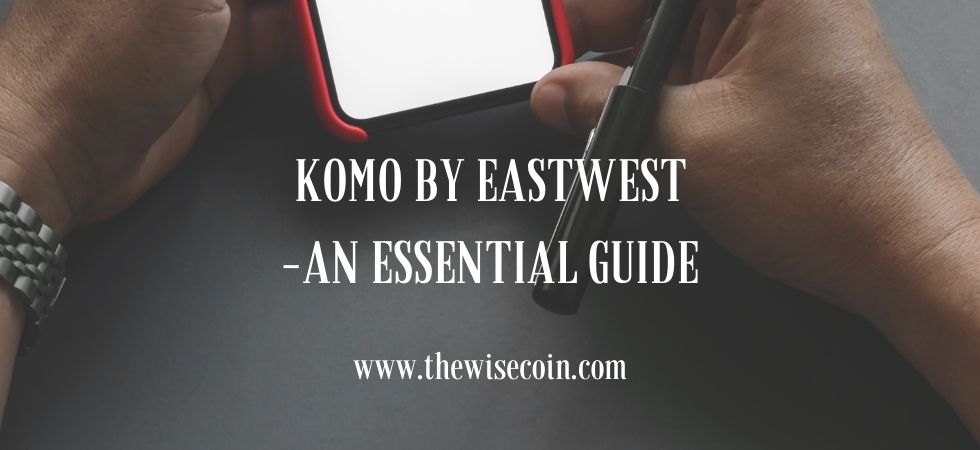What is an Emergency Fund and Why is it a Priority?
Was there a time in your life when you badly needed funds and your only choice is to ask relatives and friends to lend you money? Well, you’re not alone. Most of us have gone through that kind of situation. Lesson learned? It’s good to recognize the importance of an emergency fund and why we should regard it as our utmost priority.
Not an unusual financial story
It looks like a normal Monday morning for Juan, an employee working in a business outsourcing company serving Australian clients. He walks hurriedly towards the office as he is already late than usual. He taps his proximity card in the security device on the right side of the office door. At once, he gains access and pushes the glass door, then went straight to his workstation.
He noticed that a few of his coworkers are not in their workstations. Perhaps, they are also late. He opens his computer and logs in. But the password doesn’t work. He’s been using that credential for more than 2 months. How could he forget? He tried again. But just the same, he can’t log in. He tried once more but again it failed. ‘This is weird‘, he said to himself.
From one corner of the office, he heard someone called his name. It’s the HR Manager. She asked him for a one-on-one meeting in her office. During the meeting, she enumerated his major contributions to the company, the successful projects he spearheaded, and even his active participation in company events. From the back of his mind, he knows where this conversation is leading.
She’s now talking about a package, a month’s worth of salary for every year of service. However, he now faintly hears her voice. His mind drifted to various possibilities and uncertainties. His emotions are conquered by one indomitable feeling – fear.
He remembers that last year, he and his wife had just acquired a property in Laguna and also purchased their dream car. In the same year, they were showered with happiness as their baby was born. Using their salary loans from Pag-ibig and SSS, they threw a baptismal celebration with almost everyone invited.
With all their salary going to expenses, they have no savings in the bank and no emergency fund.

What is an emergency fund?
An emergency fund is money normally deposited in a bank and set aside for unexpected personal financial emergencies. It serves as a financial buffer and safety net which is left untouched until such time that the need for it is required.
An emergency fund is something that we don’t want to use. It is just there and ready when the time comes.
Why is an emergency fund a financial priority?
An emergency fund is the initial major step in the journey to financial freedom. It will give us peace of mind thinking that whatever happens to our employment, freelance job, business, or investments, our expenses will be covered for several months until we can financially recover.
Life is full of uncertainties. We don’t know what will happen tomorrow, next month or in the coming years.
The story above is a good example. Job loss can happen at any moment and to anyone. It happened to me before and could happen again today. It could also happen to you, whatever is your position in the company your working right now. There are many circumstances outside our control that we can never prevent from happening.
Without an emergency fund, a person in a financial emergency will resort to borrowing (personal or thru credit cards) that will add up once again to his existing loans. These loans will pile up every moment there is a financial emergency and it will become so hard for him to recover from it. This is experienced by many people with others still deep in debt even at the time of their retirement.
An emergency fund is also a must when investing in financial instruments such as UITFs, mutual funds, and stocks.
A person should not invest without it as this will result in great losses in times of financial emergencies. In addition, money invested can’t be easily withdrawn. This is one of the financial mistakes people made in the past including me. You may want to check those mistakes in this post: Top 7 Financial Mistakes I Made in the Past.
What are financial emergencies?
The following are examples of real financial emergencies:
- Job loss such the story above
- Medical emergencies. If you have Maxicare EReady Advance Titanium Prepaid Health Card, this could somehow help in times of unpredictable medical emergencies.
- Car troubles needing immediate repairs
- House problems needing a fix right away such a leak in the roof
- Fund to cover leaves/ absences without pay due to sickness for a long period of time
What are not financial emergencies?
The following are not regarded as emergencies:
- The gadget you wanted so much is on 50% sale in Lazada and you feel that you need to buy it right now
- Birthday celebrations
- House extension/ improvement
- Christmas parties
- Car maintenance
How much is an emergency fund?
Depending on your current financial status, an emergency fund should be equal to 3, 6, or even 12 months’ worth of expenses.
If you are single, you’re not the breadwinner of your family and you have no dependents, 3 months is enough. However, if you are single but you are the breadwinner or have dependents, 6 months is good enough.
Your target should also be 6 months if you’re married with children and your spouse is also working, However, if you are the only one working in the family and everyone depends on your income, your target should be at least 12 months.
The above suggestions are just the minimum amount of emergency funds. You can strive for more buffer if your finances will allow it. For example, if you’re the only one working in the family, you can extend your fund to cover 18 months. As we have said, life is full of uncertainties. The more buffer you have, the more that you will feel safe and experience greater peace of mind. Again, this depends on your current finances and what works well to a person might not work to another.
Where to put your emergency fund
An emergency fund should be liquid. The best place to put it is in an ATM bank account or accounts that you can withdraw anytime during emergencies. This is especially true when you are building the first month of your fund. Put it in a regular account in a major bank or banks with good saturation of ATM machines in your area.
It should be separate from your payroll account. It has the sole purpose of being just the source of your emergency fund. Why? Though it should be easily accessible, you should not be tempted to use it for things other than emergencies such as shopping or eating out with friends. As they say, ‘out of sight, out of mind.’
Final thoughts
If you don’t have an emergency fund right now, it’s time to start building it. You’ll never know what will happen tomorrow so it’s best to be prepared. You can build your emergency fund little by little until you reach your first milestone, for example, a month’s worth of the emergency fund. Then continue saving until you reach the ultimate goal.
What’s the best part of having an emergency fund? It lessens your stress levels and you can sleep well at night without worrying so much about the future. Instead of feeling anxious about tomorrow, you can focus your energy on things that really matter in life. Therefore, building an emergency fund also builds happiness, one of the reasons why we are living in this world.

















7 Responses
[…] Why do we need an emergency fund? Here is my post that tackles this topic: What is an Emergency Fund and Why is it a Priority? […]
[…] What is an Emergency Fund and Why is it a Priority? […]
[…] What is an Emergency Fund and Why is it a Priority? […]
[…] Everyone needs an emergency fund. It is an amount that we normally deposit in a bank and allot for unexpected financial situations or emergencies. It is a financial buffer and safety net so that in times that we need cash, it is easily accessible. This will ensure that we will not resort to borrowing from others or withdrawing our investments. To know more about this fund, you may check this post: What is an Emergency Fund and Why is it a Priority? […]
[…] You can allot the saved money to your car’s budget such as preventive maintenance, repairs or purchases of replacements such as tires, batteries, and other parts. Second, this can be pooled into a savings account such as GCash GSave or an emergency fund. […]
[…] Emergency fund […]
[…] is a hard lesson for someone who doesn’t have enough emergency funds to cover unforeseen events. You have to deal with the varied emotions of losing a loved one and at […]